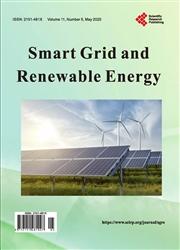Energy Performance Improvement in House Boat Tourism through Clean Energy Route Interfaced with Energy Efficient Power Conversion Techniques and Energy Storage
引用次数: 1
Abstract
With its unique culture and tradition, tourism is distinguished and globally attractive sector of economy in the Kerala state. House boat tourism is the backbone of this sector. Luxurious and climate controlled suites combined with back water transport are the major attraction of these house boats. For both propulsion and indoor amenities, the hydrocarbon based fuels are a key energy resource. The continuous exploitation of fossil fuels, especially petrol and diesel through combustion route as a primary energy source have landed in major contribution of carbon footprints and water pollution. The impact of these activities to climate change will lead to a threat for aquatic life and sustainable tourism. Energy efficiency and renewable energy are the forward players to tackle these challenges. Dependence on reliable and quality power from grid is also a challenge for these house boats during docked as well as sailing conditions. A novel methodology to harvest clean and free renewable energy from roof top Solar Photo Voltaic (SPV) modules, store using suitable energy storage technology combined with energy efficient power distribution using Low Voltage Direct Current (LVDC) to feed energy optimally to the hotel loads is discussed. Pre and post implementation Energy performance and climate impact is evaluated through Energy performance analysis and the same is discussed.通过清洁能源路线与高效能源转换技术和储能相结合,提高船屋旅游的能源性能
凭借其独特的文化和传统,旅游业是喀拉拉邦杰出的、具有全球吸引力的经济部门。船屋旅游是这个行业的支柱。豪华和气候控制套房结合回水运输是这些船屋的主要吸引力。无论是推进装置还是室内设施,碳氢化合物燃料都是关键的能源。化石燃料,特别是汽油和柴油通过燃烧途径作为主要能源的不断开采,已经成为碳足迹和水污染的主要贡献者。这些活动对气候变化的影响将对水生生物和可持续旅游业构成威胁。能源效率和可再生能源是应对这些挑战的先行者。在停靠和航行条件下,对来自电网的可靠和高质量电力的依赖也是这些房屋船面临的挑战。讨论了一种从屋顶太阳能光伏(SPV)模块中获取清洁和免费可再生能源的新方法,使用合适的储能技术与使用低压直流(LVDC)的节能配电相结合,以最佳方式向酒店负载提供能源。通过能源绩效分析对实施前后的能源绩效和气候影响进行了评估,并对其进行了讨论。
本文章由计算机程序翻译,如有差异,请以英文原文为准。
求助全文
约1分钟内获得全文
求助全文

 求助内容:
求助内容: 应助结果提醒方式:
应助结果提醒方式:


